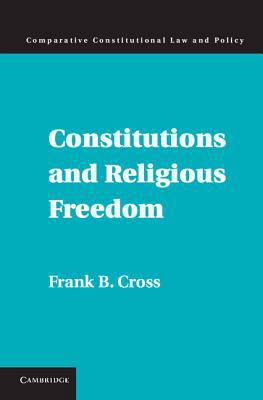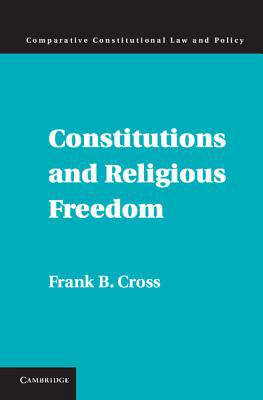
- Afhalen na 1 uur in een winkel met voorraad
- Gratis thuislevering in België vanaf € 30
- Ruim aanbod met 7 miljoen producten
- Afhalen na 1 uur in een winkel met voorraad
- Gratis thuislevering in België vanaf € 30
- Ruim aanbod met 7 miljoen producten
Zoeken
Omschrijving
Many of us take for granted the idea that the right to religious freedom should be protected in a free, democratic polity. However, this book challenges whether the protection and privilege of religious belief and identity should be prioritized over any other right. By studying the effects of constitutional promises of religious freedom and establishment clauses, Frank B. Cross sets the stage for a set of empirical questions that examines the consequences of such protections. Although the case for broader protection is often made as a theoretical matter, constitutions generally protect freedom of religion. Allowing people full choice in holding religious beliefs or freedom of conscience is central to their autonomy. Freedom of religion is thus potentially a very valuable aspect of society, at least so long as it respects the freedom of individuals to be irreligious. This book tests these associations and finds that constitutions provide national religious protection, especially when the legal system is more sophisticated.
Specificaties
Betrokkenen
- Auteur(s):
- Uitgeverij:
Inhoud
- Aantal bladzijden:
- 270
- Taal:
- Engels
- Reeks:
Eigenschappen
- Productcode (EAN):
- 9781107041448
- Verschijningsdatum:
- 5/02/2015
- Uitvoering:
- Hardcover
- Formaat:
- Genaaid
- Afmetingen:
- 152 mm x 229 mm
- Gewicht:
- 530 g

Alleen bij Standaard Boekhandel
+ 279 punten op je klantenkaart van Standaard Boekhandel
Beoordelingen
We publiceren alleen reviews die voldoen aan de voorwaarden voor reviews. Bekijk onze voorwaarden voor reviews.











